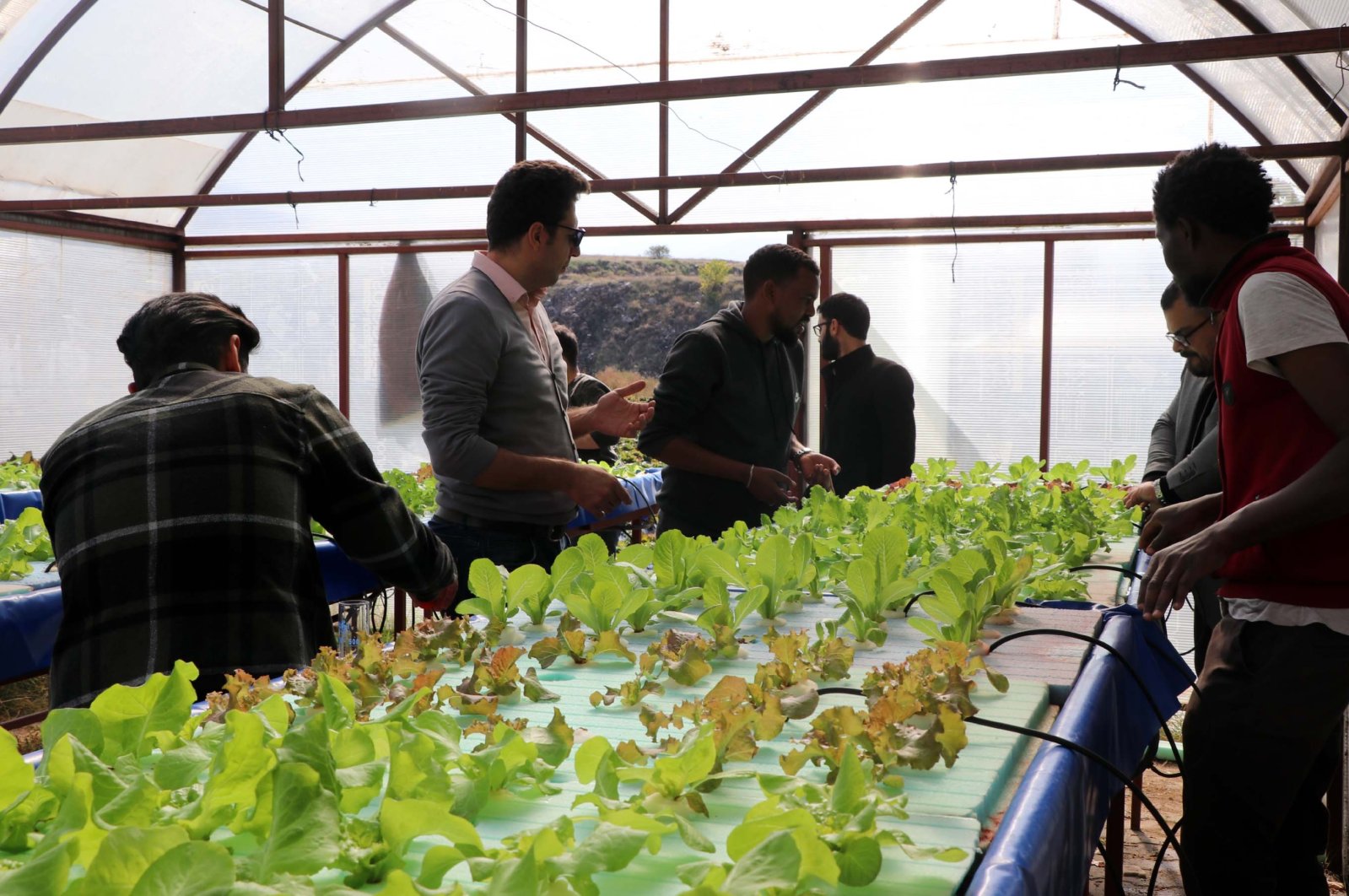
Erciyes University's Agricultural Research and Application Center (ERÜTAM) has launched an innovative project that could transform the way lettuce is cultivated. Their "Floating Lettuces" project is a groundbreaking endeavor that involves growing lettuce on Styrofoam placed in water-filled pools, eliminating the need for traditional soil-based agriculture. This pioneering project is set to be integrated into higher education curricula and shared with national and international students.
Abdullah Ulaş, a lecturer specializing in soil science and plant nutrition, provided insights into the project, which was initiated three months ago. Ulaş explained that the program has attracted 23 master's and doctoral students from various countries, including Iraq, Somalia, Ghana, the Philippines, Indonesia, Pakistan, Bangladesh and Sudan, to participate in the training.
The students are taught cutting-edge techniques for cultivating lettuce on Styrofoam placed in water-filled pools without the use of soil. Upon completing their training, the students will possess the skills to implement this innovative method in their home countries, contributing to their economies.
"The floating lettuce project is entirely based on a water system. We aim to nurture the plants by providing a nutrient solution prepared in-house for the water. The dark hue of the lettuce results from the iron we supply. The primary objective of this project is to create employment opportunities in underdeveloped nations," Ulaş elaborated.
He emphasized that the system is entirely chemical-free, without the use of external pesticides or the presence of harmful insects. This approach ensures the purity of the produce and allows for precise control over the nutrients supplied, characterizing it as a form of "good agriculture." Under controlled conditions, lettuce can be cultivated in approximately one month. In contrast, traditional soil-based agriculture typically takes three months, yielding only a fraction of the output, around eight to nine harvests per year compared to the nearly continuous production of lettuce under the new system.
Hadı Hama Ameen, an Iraqi student who had completed his undergraduate studies in soil sciences at the Faculty of Agriculture, expressed the significance of the project for his future. He noted, "With this project, I'll be able to grow and teach soil-free agriculture activities to the youth in my country and create employment opportunities."
Saad Mohamed Hajı Nour, a Somali national pursuing a doctoral degree in the Department of Agricultural Sciences and Technologies at ERÜTAM, shared his aspirations. "After learning the floating lettuce project techniques here, I will help my people, especially our farmers in my country," he declared. This innovative approach to lettuce cultivation promises a sustainable and efficient solution for agriculture, with far-reaching implications for countries seeking to enhance food production and economic growth.
